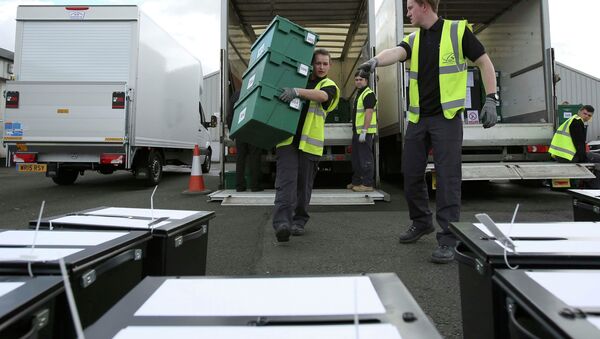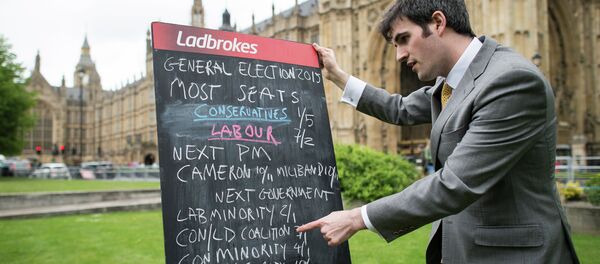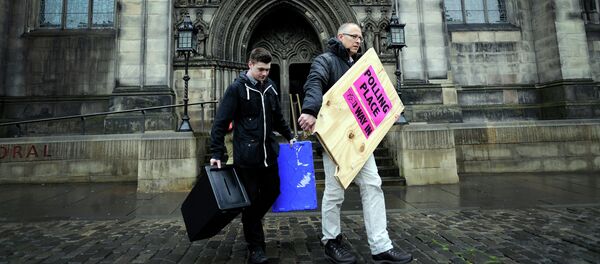"All the signs are that it is going to be a hung parliament, as neither of the two biggest parties are going to have a majority. So, after the election now it is going to be coalition negotiations," Brenton said.
Brenton, who worked for the Foreign Office for three decades, explained that the type of the coalition depended on which of the two parties – the Conservatives and the Labour — receives the most seats, because even though they would not have a majority, they would still have the most legitimacy in terms of forming the cabinet.
Other options available to the parties are a confidence and supply agreement and cooperation on a vote-by-vote basis.
A confidence and supply agreement implies that a smaller party supports a larger one in its budget proposals and votes of confidence – a price for playing a role in the parliament.
A vote-by-vote cooperation is the least binding option for the participants that allows the parties to keep their stance unchanged on disputable issues.
Labour leader Ed Miliband has expressed willingness to have a vote-by-vote partnership with the Scottish National Party (SNP).
SNP campaign director Angus Robertson has told Sputnik that parties in the 2015-2020 UK parliament are most likely to cooperate on a vote-by-vote basis.
The rise of smaller parties in the current UK election campaign may profoundly change the British politics, preventing major parties from carrying out extreme policies, Sir Tony Brenton, former British ambassador to Russia said.
"The good thing about small parties being involved is that they discourage the big parties from doing extreme things. We are learning a different style of governance," Brenton said.
He said it was a very big change for the country not used to having coalitions, which he considers a likely outcome of the May 7 election, since no party looks set to gain an absolute majority.
However, the outgoing Conservative-LibDem coalition government has proven to be rather effective, according to the former diplomat. The current situation represents "another step in the same direction," Brenton said.
Besides a coalition, possible options for UK parties are a confidence and supply agreement, when a smaller party backs a major on its budget proposals and votes of confidence, or more non-binding cooperation on a vote-by-vote basis.
The general election in the United Kingdom is taking place on May 7. Public support for the Conservatives and the Labour hovers at 33 percent of the ballot. Smaller parties, including the Eurosceptic UKIP and the Scottish nationalist SNP, are seeing a surge in popularity, with the latter projected to get all 59 Scottish seats in Westminster.
The Scottish National Party (SNP) is the only one that has performed well in the "depressing" 2015 UK general election campaign, Sir Tony Brenton, former British ambassador to Russia said.
"I do not think either of the biggest parties have done very well…So, it has been a rather depressing election campaign. The one party that has really made an impact is the Scottish nationalists," Brenton said.
Brenton said it was particularly striking for him that the electorate had been generally passive and unenthusiastic about what the parties have offered to them.
Scots, especially SNP supporters, have been the only truly engaged voters in the campaign so far, Brenton noted.
On May 7, UK citizens will take to polling stations to cast their votes for the party of their choice.
Earlier, SNP campaign director Angus Robertson told Sputnik that SNP may trigger a democratic shift in the very principles of UK governance should it gain strong presence in the parliament after the election.
The Scottish National Party was behind the September 2014 referendum on Scotland's membership in the United Kingdom. The vote has failed, but the SNP has seen a fourfold increase in membership over the past two years – to 110,000 this spring.
According to YouGov poll, as of May 6, SNP are likely to get 5 percent of the ballot, less than the Liberal Democrats, UKIP, the Labour and the Conservatives. The last two parties are tied at the top position with 34 percent of the vote each.




